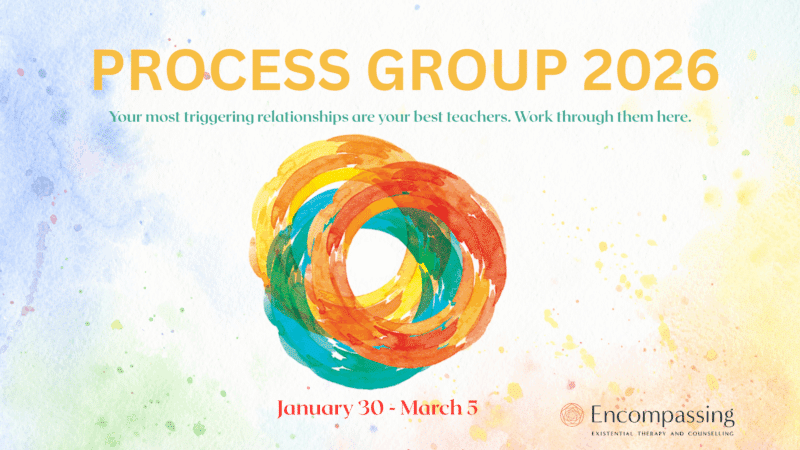Work-life balance counselling helps you manage stress, prevent burnout, and strengthen well-being. At Encompassing.co, therapists use existential exploration to restore balance between professional demands and personal life.
This guide explains what counselling involves, the challenges of Singapore’s fast-paced environment, therapeutic approaches, tailored services, funding options, self-care practices, and common questions.
What Work-Life Balance Counselling Involves and Who Benefits
Work-life balance counselling is a therapeutic process that helps individuals align professional demands with personal well-being. Sessions identify stressors, establish boundaries, and strengthen coping strategies. Through assessment and personalised action plans, therapists build resilience, boost job satisfaction, and reduce anxiety.
A project manager, for example, may learn to delegate tasks and schedule regular self-care breaks, restoring energy and focus. Counselling bridges personal aspirations and career goals, creating space for both achievement and fulfilment.
Those who benefit include professionals facing heavy workloads, parents balancing careers and family life, expatriates adapting to local demands, and students handling academic stress. It also supports individuals navigating shift work, hybrid arrangements, or career transitions. Work-life balance therapy in Singapore provides tailored guidance for each unique context.
How Work-Life Balance Counselling Supports Mental Health in Singapore
Counselling nurtures mental health through stress management, emotional awareness, and behavioural change. Sessions provide practical strategies that improve daily functioning and long-term resilience:
- Stress management techniques reduce physiological responses and promote calm
- Emotional reflection builds insight into burnout and mood shifts
- Structured routines and firm boundaries reinforce sustainable well-being
Work-life balance counselling addresses common concerns such as stress, burnout, anxiety, low job satisfaction, fatigue, and strained relationships. It also explores perfectionism, imposter syndrome, and difficulties disconnecting from work.
Research highlights that unmanaged workplace stress contributes to anxiety and depression, while counselling interventions improve resilience and satisfaction. Recognising these challenges within Singapore’s fast-paced culture underscores why work-life balance counselling is vital here.
Why is Work-Life Balance Crucial in Singapore’s Work Culture?
Work-life balance is vital in Singapore’s fast-paced work culture marked by extended hours, rising costs, and high expectations. Counselling offers a supportive space to manage chronic stress, preserve emotional stability, and sustain performance while honouring personal and family commitments.
Research shows that poor balance increases risks of anxiety, depression, and burnout, affecting both productivity and quality of life. A 2022 study reported rising work-related stress among professionals, with disrupted sleep and emotional strain linked to long working hours. International studies also link digital overconnectivity to impaired recovery and reduced well-being.
Contributing Factors in Singapore’s Work Culture
| Contributing Factor | Description | Impact on Work |
|---|---|---|
| Extended Work Hours | Professionals working beyond standard schedules. | Causes fatigue, poor recovery, and reduced focus. |
| High Performance Expectations | Pressure to meet ambitious objectives. | Increases anxiety and drives perfectionism. |
| Competitive Environment | Emphasis on constant productivity and comparison. | Elevates burnout risk and fosters isolation. |
| Digital Connectivity | Constant availability through devices. | Disrupts sleep and weakens personal boundaries. |
These stressors frequently grow into mental health concerns, influencing both relationships and work performance.
Main Causes of Work Stress in Singapore
Work stress often arises from heavy workloads, strict deadlines, and pressure from senior management. A culture that prizes productivity over rest heightens cortisol levels, reduces focus, and interferes with healthy sleep cycles. These patterns make balance essential for long-term health and resilience.
Effects on Mental Health and Relationships
Poor balance increases risks of anxiety disorders, depression, irritability, and fatigue. It can weaken family relationships, as partners and children may feel neglected. Employees also become less emotionally available at work. Counselling helps address these effects early, strengthening both resilience and connections.
What Do Recent Statistics Reveal About Work-Life Balance in Singapore?
Recent studies highlight the growing importance of Work-Life Balance Therapy. A 2023 study revealed that 41% of employees were considering leaving their jobs to seek better balance.
The Randstad Employer Brand Research for 2022 and 2023 reinforces these findings, showing high dissatisfaction linked to workload and balance concerns. These reports demonstrate how strongly work-life balance influences job mobility in Singapore’s competitive labour market.
Mental health statistics also paint a concerning picture. Since 2020, the National Population Health Survey has reported rising rates of poor mental health among residents. The survey highlights the urgent need for individuals to safeguard well-being through healthier lifestyles and timely professional support.
These ps confirm that poor work-life balance affects career decisions, mental health, and overall resilience. They also emphasise the growing role of counselling in meeting these challenges. The demand for Work-Life Balance Therapy continues to expand within Singapore’s dynamic workplace culture
What Therapeutic Approaches Are Used in Work-Life Balance Counselling?
Work-Life Balance Therapy at Encompassing integrates methods that focus on restoring balance and addressing the deeper meaning behind workplace stress. Central to this process is existential therapy, which helps clients explore identity, purpose, and values in relation to both work and life.
Research shows that meaning-centred approaches improve resilience, reduce anxiety, and foster long-term satisfaction by aligning daily choices with deeper values. Occupational studies also confirm that when employees find purpose, they are less vulnerable to burnout and more motivated in their roles.
Key Features of Existential Therapy for Work-Life Balance
- Explores freedom, belonging, and authenticity within personal and professional contexts
- Clarifies what truly matters beyond achievements and external recognition
- Encourages reflection on identity and purpose to strengthen motivation
- Builds resilience against workplace stress and emotional fatigue
- Supports stronger connections at home and in relationships by addressing competing demands
Through these explorations, clients develop sustainable strategies that enhance performance without sacrificing well-being.
Work-Life Balance Counselling at Encompassing draws on existential therapy to provide tailored support for professionals, parents, expatriates, and students within Singapore’s demanding work culture.
How Is Work-Life Balance Counselling Tailored for Different Client Needs?
Work-Life Balance Therapy at Encompassing is shaped by existential therapy, which adapts to the unique needs of each client. Sessions begin with a personalised intake, where therapists explore values, identity, and meaning alongside the specific challenges presented.
Tailored Applications of Existential Therapy
- Individual counselling supports professionals in reflecting on purpose, managing workplace stress, and maintaining resilience in high-pressure roles
- Couples and family counselling addresses communication, shared values, and boundary-setting to ease relational strain caused by work demands
- Organisational support offers workshops and programmes that encourage staff to explore belonging, meaning, and authenticity within workplace culture
This flexible use of existential therapy ensures that each client or group develops balance strategies rooted in personal and relational meaning.
How to Access Work-Life Balance Counselling in Singapore?
Beginning Work-Life Balance Therapy involves finding a qualified therapist, understanding costs, and preparing for the first session. Clear steps reduce barriers and make support accessible.
Finding a Qualified Counsellor
Professional directories such as the Singapore Association for Counselling and the Singapore Psychological Society provide listings of accredited practitioners. Reviewing therapist profiles helps identify specialisations, experience, and client feedback. Many clinics offer both in-person appointments and secure online sessions, making access more convenient.
What to Expect in Your First Session
Your initial session usually covers personal history, current challenges, and therapy goals. The counsellor introduces the process, explains confidentiality, and collaborates on milestones. Short exercises may be suggested for practice between sessions to support gradual progress.
| Step | What It Involves | Why It Matters |
|---|---|---|
| Find a qualified counsellor | Use professional directories and review therapist profiles. | Ensures credentials and fit for individual needs. |
| Choose format | Select in-person or secure online sessions. | Provides flexibility for busy professionals. |
| Prepare for first session | Share history, challenges, and therapy goals. | Builds trust and sets collaborative direction. |
Accessing Work-Life Balance Counselling empowers individuals to take proactive steps toward resilience and fulfilment. These services are increasingly vital within Singapore’s fast-paced and demanding work culture.
What Practical Tips and Self-Help Strategies Enhance Work-Life Balance?
Beyond Work-Life Balance Counselling, simple daily practices can help you sustain progress. These strategies strengthen resilience, reduce stress, and promote well-being. Research consistently shows that integrating structured self-care practices alongside counselling protects against burnout and enhances long-term satisfaction at work and at home.
Establish Clear Work-Home Boundaries
Set specific “offline” hours each evening to separate professional and personal life. Research links clear boundaries to better recovery and reduced stress. In Singapore’s fast-paced culture, intentional boundaries safeguard both relationships and health.

Practice Brief Mindfulness Moments
Short breathing exercises before and after work shifts help calm the nervous system. Studies on mindfulness highlight improved emotional regulation and reduced workplace anxiety. Even five minutes a day can restore focus and presence.
Schedule Personal Priorities Time
Dedicate weekly time for hobbies, physical activity, or connection with loved ones. Meaningful leisure strengthens resilience and buffers against occupational stress. In high-pressure environments like Singapore, deliberate prioritisation is vital.
Utilise Calendar Blocking
Allocate focused work periods and rest intervals throughout the day. Studies show that structured scheduling improves concentration and reduces fatigue. This practice ensures balance between productivity and recovery.
Apply Stress Reduction Techniques at Work
Deep breathing, progressive muscle relaxation, or guided imagery can interrupt stress cycles. Short walking breaks outdoors refresh energy and reduce tension. Regular self-reflection supports consistent stress management. Research in workplace psychology confirms that these techniques improve both mood and performance.
Explore Mental Wellness Apps and Tools
Meditation apps, mood trackers, and virtual coaching platforms offer convenient support. Tools integrated with work calendars can prompt breaks and monitor stress. Studies confirm that consistent digital tracking reduces exhaustion and promotes healthier routines.
Prevent Burnout and Build Emotional Resilience
Watch for warning signs like fatigue, cynicism, or reduced effectiveness. Coping strategies may include peer support groups, professional supervision, and workload adjustments. Journaling and gratitude practices nurture resilience.
By combining these strategies with Work-Life Balance Therapy, you strengthen both agency and adaptability. Within Singapore’s demanding work culture, these practices offer practical ways to stay grounded and resilient.
Final Thoughts
Achieving work-life harmony in Singapore’s demanding environment is crucial for sustained well-being and professional success. Work-life balance counselling, particularly through existential exploration, offers a powerful pathway to manage stress, prevent burnout, and cultivate deeper meaning.
By addressing underlying values and establishing healthy boundaries, individuals can navigate career pressures while nurturing personal life. Combining professional support with practical self-care strategies empowers a resilient approach to daily challenges, fostering both achievement and fulfilment. Prioritising this balance is not merely a luxury but a vital investment in mental health and overall quality of life.
Frequently Asked Questions
What is existential therapy’s role in work-life balance counselling?
Existential therapy helps individuals explore their core values, purpose, and identity in relation to work and life. It encourages reflection on what truly matters, fostering resilience against stress and aligning daily choices with deeper meaning for sustainable well-being.
How quickly can I expect to see results from work-life balance counselling?
Results vary for each individual, but many clients report initial improvements in stress management and boundary setting within a few sessions. Long-term shifts in perspective and sustained well-being typically develop over several months, supported by consistent practice and reflection.
Is work-life balance counselling only for severe stress or burnout?
No, counselling is beneficial for anyone seeking to proactively manage stress, improve boundaries, or enhance overall well-being. It supports professionals, parents, and students in navigating daily pressures, preventing burnout before it becomes severe, and fostering a more fulfilling life.
Are there funding options or subsidies for work-life balance counselling in Singapore?
While direct government subsidies specifically for work-life balance counselling may be limited, some employers offer Employee Assistance Programmes (EAPs) that cover therapy costs. Additionally, certain insurance plans might provide coverage. It’s advisable to check with your employer or insurance provider.
How do I know if I need work-life balance counselling?
Consider counselling if you experience persistent fatigue, anxiety, low job satisfaction, difficulty disconnecting from work, or strained relationships due to work demands. If self-help strategies aren’t enough, professional guidance can provide tailored support to restore equilibrium.
References
- Ministry of Health & Health Promotion Board. (2023, September 27). National Population Health Survey (NPHS) 2022 report. Singapore: Ministry of Health & Health Promotion Board.
- Randstad Singapore. (2022). 2022 Randstad Singapore employer brand research report. Randstad.
- Watanabe, T., Masuya, J., Hashimoto, S., Honyashiki, M., Ono, M., Tamada, Y., Fujimura, Y., Inoue, T., & Shimura, A. (2022). Long working hours indirectly affect psychosomatic stress responses via complete mediation by irregular mealtimes and shortened sleep duration: A cross-sectional study. International Journal of Environmental Research and Public Health, 19(11), 6715.
- HRO Today. (2023). 42% of workers actively considering quitting their jobs citing poor work-life balance, low pay, and toxic company culture.
- Ibrahim, B. A., & Hussein, S. M. (2024). Relationship between resilience at work, work engagement and job satisfaction among engineers: A cross-sectional study. BMC Public Health, 24, 1077.
- Mental Health Center. (2025, May 23). Boundaries and mental health. Medically reviewed by M. Hrymoc, M.D.
About the Author
I am a BPS-accredited and SPS-accredited Counselling Psychologist with a Doctorate in Existential Psychology from the New School of Psychotherapy and Counselling in London, U.K. My care philosophy is not to diagnose, label, or categorise but rather to work with the individual in front of me in the here and now.
My clinical credentials certainly play a significant role in defining my professional identity. But to foster a deeper connection and authenticity, I invite you to discover my other “Selves”, the various facets of who I am.











